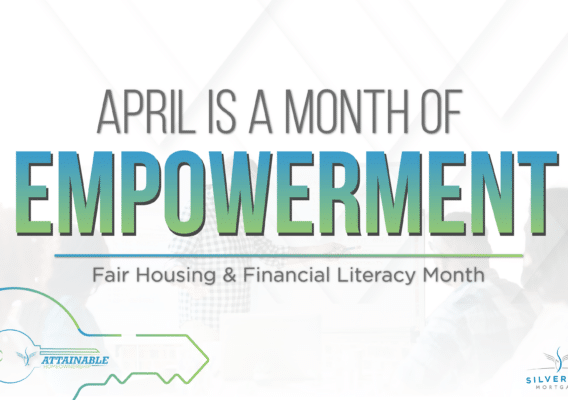Silverton Mortgage offers a non-traditional loan option for the non-traditional worker.
When it comes to the American workforce, pretty much everything has changed over the past few decades. From the types of jobs available to how they are performed, the landscape is completely different. With the digital age replacing manufacturing, how and where people work is more flexible than ever before. This has led to an increase of entrepreneurs who are forging their own path in the world of enterprise. As with most things, some ups and downs come with this lifestyle, the most intimidating aspect perhaps being the decision to purchase a home. Without a more traditional work history, the idea of tackling the mortgage process is understandably scary.
Having a non-traditional income stream can be both daunting and exciting, but if you’re one of the many who have chosen this path, you’re certainly not alone. In fact, non-traditional workers comprise nearly 33% of the workforce with an estimated 27 million Americans leaving their full-time jobs for entrepreneurship by 2020. Being your own boss is certainly not for everyone but, for those who choose it, the autonomy that comes with working for themselves is worth the inconveniences that come with having a more traditional job.
While there are plenty of benefits to having a non-traditional job, there’s no denying that it can make buying a home more complicated. That’s because when you start the mortgage process, lenders look at your assets, debt-to-income ratio, and credit history. This is typically assessed by the documents you provide, including recent pay stubs, bank statements, W-2 forms, and tax returns – paperwork that is not necessarily attainable through a non-traditional employer. These paperwork requirements tend to scare those with non-traditional jobs away. Maybe your monthly income fluctuates or many of your finances are determined by the deductions you claim.
Whether you’re a freelancer, gig worker, or have additional revenue streams aside from your day job, having a less common income stream isn’t a deal-breaker when it comes to buying a home. In recent years, Fannie Mae has loosened the guidelines for these borrowers which makes it easier to prove income despite not having a consistent revenue stream. Keep in mind that factors such as your credit score, how much you have in savings, and what you’re able to put down still help determine the terms of your loan.
The first step to exploring your options is to contact a lender that has experience working with your unique circumstances and can help you choose the right program to meet your needs. At Silverton Mortgage, we’re proud to provide a Bank Statement Loan program designed specifically for those with less common income streams. It’s a flexible process that allows you to qualify for a mortgage by using your business or personal bank statements to verify income. You provide 24 months’ worth of bank statements and we use that information to get you approved and on your way to homeownership. It’s the perfect alternative to the traditional mortgage loan process and gives you the freedom of qualifying without the standard paperwork. No W2’s, no paystubs, just 24 months of bank statements are needed to get you on the path of becoming a homeowner. That’s it!
We know that entrepreneurs tend to dream big in all aspects of their life, which is why we also offer jumbo financing for loans up to $2.5 million with no tax returns required. With the ability to put as little as 10% down and both adjustable and fixed rates available, those who don’t have a nine-to-five job have just as much freedom as anyone else when it comes to owning a home.
So many non-traditional workers believe that choosing these career paths ultimately means sacrificing their dreams of one day owning a home. However, choosing an unconventional way to support yourself doesn’t mean you can’t enjoy the convenience and peace of mind that comes with being a homeowner. Once you’ve decided that you’re ready to be a homeowner, make sure to speak with someone who understands your unique circumstances and can help you determine if now is the time to take the leap into homeownership.
You Might Also Like

Navigating the Mortgage Maze: The Mortgage Process Simplified

April: The Month of Empowerment

